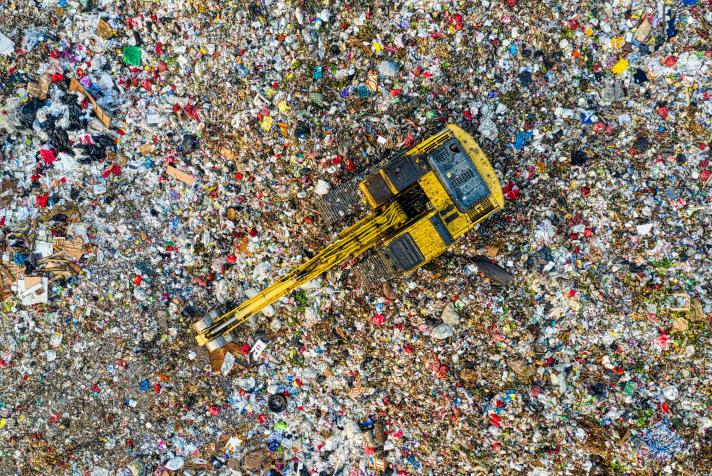
The UNWASTE action is an EU initiative in partnership with Thailand and three other ASEAN countries- Indonesia, Malaysia and Vietnam, to tackle waste trafficking, support a circular economy transition and address environmental issues. The project is under the management of the European Commission’s Service for Foreign Policy Instruments (FPI), Asia-Pacific.
A key milestone that UNWASTE has already achieved is setting up national advisory committees and a Taskforce on Waste Trafficking. Effective prevention of illegal waste trade, hazardous for environment and society, requires strong inter-agency cooperation. This is a major take away of the latest National Dialogue of the Waste Trafficking Taskforce for Thailand (WTTT) held at the Laem Chabang Customs Department in Chonburi Province of Thailand. The taskforce convened to continue cooperation mechanisms between regulatory agencies, law enforcement, and criminal justice institutions.
In Thailand, UNWASTE has been engaging with various governmental agencies to improve cooperation and increase connectivity among major actors and achieve a structured response to waste trafficking particularly among:
- the Ministry of Finance (Customs Department),
- the Ministry of Natural Resources and Environment (Pollution Control Department),
- the Ministry of Industry (Department of Industrial Works),
- the Royal Thai police, and
- key Thai business and industry Partners.
At the regional level, UNWASTE has also reinforced policy dialogue to promote partnership between the EU and ASEAN (notably Indonesia, Malaysia, Thailand and Vietnam), in support of the circular economy and green transitions in the region.
Countries in Southeast Asia have become major destinations for the inflow of both legal and illegal waste. To protect the environment and public health, the EU has updated the regulation on waste shipments, both within the EU and with regard to imports and exports of waste.
“The new EU Waste Shipments Regulation sets out stricter rules on the export of waste to non-OECD countries” highlighted Mr. Andreas Roettger, Head of FPI Regional Team – Asia/Pacific. “The Regulation will also increase traceability and facilitate the shipments of waste for recycling and re-use. Teaming up with Thailand and other countries in the ASEAN region, also through the UNWASTE action, is important to better manage this issue and to protect together environment and public health while advancing the circular economy”.
Coupling with this latest adoption of Waste Shipment Regulation (WSR) earlier this year 2024, UNWASTE could provide a concrete example to achieve the objectives of this Regulation. The waste data from these four ASEAN Countries provides insights and relevant indicators/statistics for other countries that received waste from the EU under the new WSR, to make an optimal use of it, unlocking new business opportunities while reducing pollution.
With the support from the EU, the UNWASTE action is implemented by the UNODC Regional Office for Southeast Asia and the Pacific, in cooperation with the United Nations Environment Programme in Indonesia, Malaysia, Thailand and Vietnam.
Details
- Publication date
- 27 September 2024
- Author
- Service for Foreign Policy Instruments

